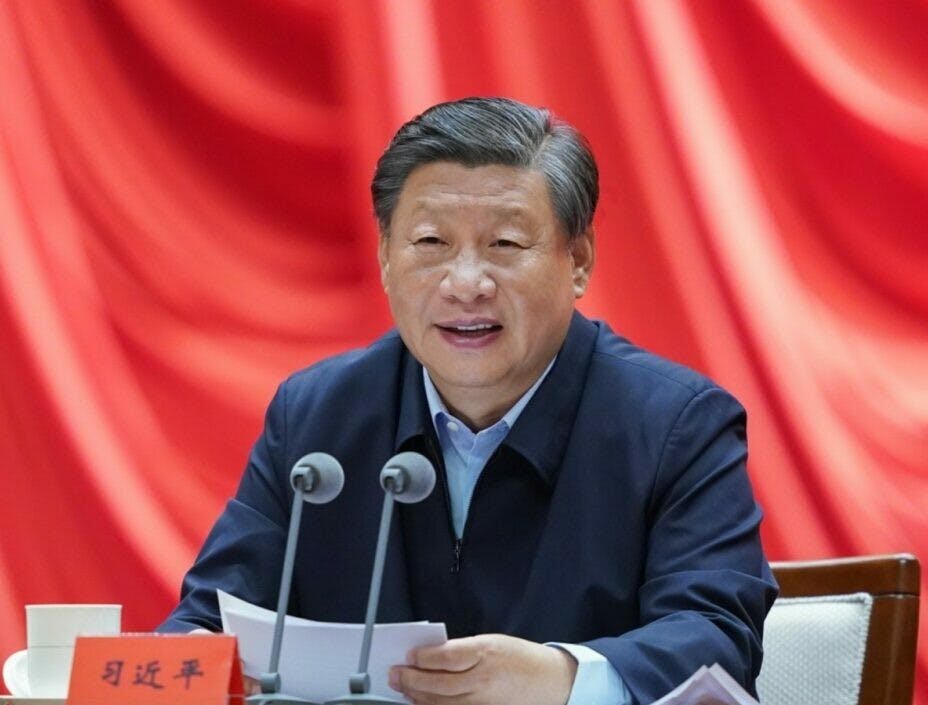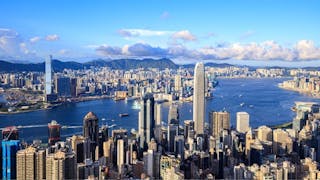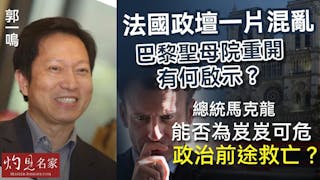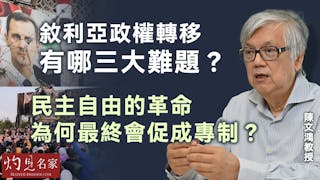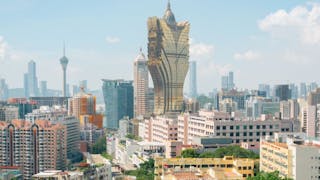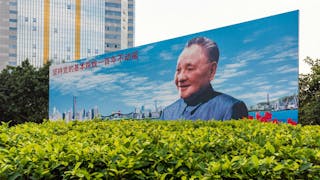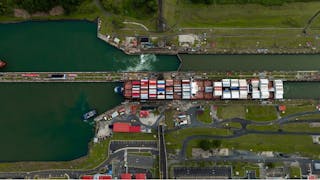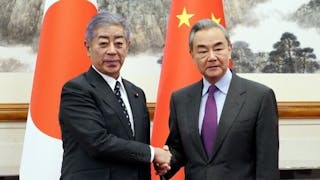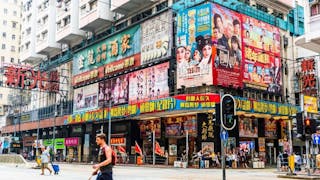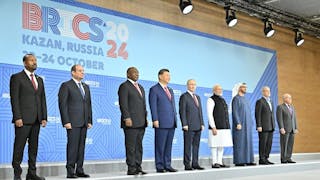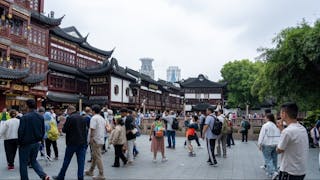8月17日,中共中央總書記習近平主持召開中央財經委員會第十次會議討論的共同富裕問題,立即引發研究和討論。就其意義、實施和影響展開討論,不僅對內地,而且對香港,或許對澳門也會有影響。
會議上,習近平強調,「共同富裕是社會主義的本質要求」,是中國式現代化的重要特徵,要堅持以人民為中心的發展思想,是社會主義現代化建設的重要特徵。在高質量發展中促進共同富裕。 事實上,在2020年10月召開的十九屆五中全會期間,中國已經對實現共同富裕的戰略發展作出規劃,而「十四五」規劃和2035年願景也同時提到了2035年實現共同富裕的重要性。
不過,許多很多港澳居民並不真正了解共同富裕的含義和影響。
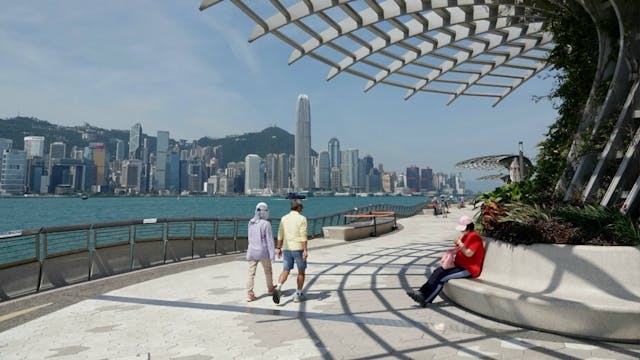
共同富裕不等同平均主義
首先,中國已故領導人鄧小平相信,馬克思關於在實現社會平等正義的社會主義共同富裕的理想,明確將共同富裕作為中國式社會主義的一個遙遠目標。早在1985年3月,鄧小平就指出:「社會主義的目的就是要全國人民共同富裕,不是兩極分化。」由於中國自實行改革開放政策,特別是2000年代以來經濟和社會的快速發展,中國領導人在貧富差距不斷擴大的情況下,一再重申實現共同富裕的理想只是時間問題。
其次,共同富裕不是無差別地在結果上「均貧富」。浙江工商大學校長郁建興和浙大公共管理學院博士生任杰撰寫的〈共同富裕及其實踐議程〉一文,明確指出「共同富裕是全體人民的富裕,是人民群眾物質生活和精神生活都富裕,不是少數人的富裕,也不是整齊劃一的平均主義,要分階段促進共同富裕」。(中國共產黨新聞網,2021年8月19日)
不幸的是,一些批評共同富裕的人誤解了這一概念,錯誤地將其與共產主義劃上等號。共產主義不同於社會主義,根據馬克思的說法,前者將是一個沒有階級,也不需要國家的烏托邦社會;社會主義則是內地社會追求的更為現實的願景。
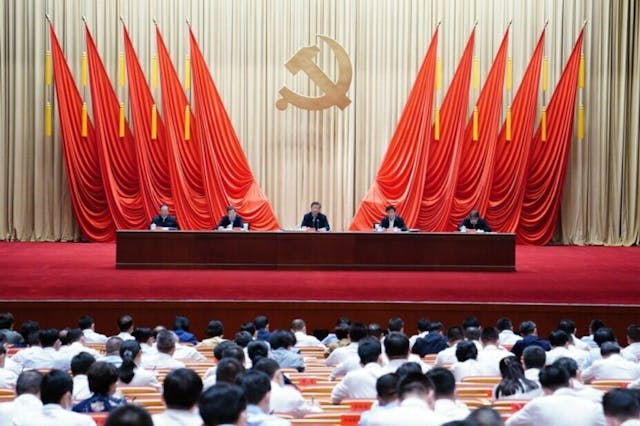
適度和政策平衡是關鍵
第三,郁建興和任杰提醒我們,共同富裕不能只是依靠不斷加重個人稅賦負擔、推出過多的社會政策、過多及過高承諾提高社會保障水平來實現。中國與北歐國家「高稅收、高福利」的模式不同。郁、任二人認為,北歐模式不適合中國,中國的共同富裕的理想特徵是:一、經濟總量增強;二、中等收入人群擴大;三、社會文化生態等協調發展,以及四、中國共產黨執政基礎的持續鞏固。可以說,共同富裕的理念可以看作是達到目的的一種手段,即增強中國共產黨的合法性,實現中國共產黨的長治久安。
第四,郁建興和任杰認為,共享是共同富裕的標誌,最重要的是建立和完善制度性保障,使各種發展要素和發展制度匹配共同富裕的目標,使各發展主體有動力、有能力朝着共同富裕目標邁進,這樣才能推動全體人民共同富裕取得更為明顯的實質性進展,意味着社會流動對低收入群體保持開放,從而創造一個具參與性和穩定的社會。
第五,共同富裕的理想是指社會實現可持續發展的需要。 可持續的概念是跨代的,包括人口、資源和環境之間的相互協調。郁、任二人強調,可持續發展不能依賴強加給個人的稅收負擔,也不能依賴推出過多的社會政策。換言之,適度和政策平衡是實現共同富裕的關鍵。
第六,郁、任二人合寫的文章認為,在高質量發展中推進共同富裕,需要追求創新、協調、綠色、開放、共享的發展理念,大力提升自主創新能力,塑造產業競爭新優勢,提升經濟循環效率,激發各類市場主體活力,更要讓發展成果最大限度地惠及低收入群體,提高低收入群體增收能力和收入水平,從而令人民生活水平提高,城鄉差距縮小。
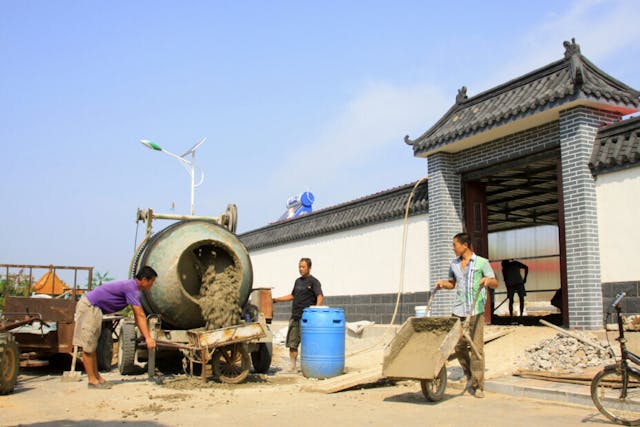
港府改革稅制不能因循怕事
如果港澳居民,特別是執政精英和眾多商界人士,能夠正確認識實現共同富裕的目標,那麼對香港和澳門的治理是正面多於負面的。
首先,澳門特區政府的「干預」政策遠比1997年後仍然過時地奉行「積極不干預」政策的香港特區政府有效率。共同富裕的目標,意味港澳兩地的管治,可以帶來雙贏的局面──民生能夠普遍得到改善,政府的合法性將會得以加強,貧富懸殊問題也會得到改善,可持續發展能夠而將會實現。
其次,如何實現港澳共同繁榮是對管治的挑戰。香港有些人已經習慣了稅率相對較低的經濟模式,任何加稅措施,都會被視為對經濟有負面影響。 可是,現在應否以更積極的方式檢討香港的稅制,以實現共同富裕的最終目標,但又不真正損害富人的利益?
奇怪的是,香港特區政府當局經常迴避稅制改革問題。稅制改革何妨溫和又可行?購買汽車和其他奢侈品是否應該加稅?大公司是否該通過對社會的捐贈(如金錢甚至土地),包括慈善和發展體育來增加企業社會責任? 阿里巴巴已計劃在2025年前為推動共同富裕投入累計1000億元人民幣,香港和澳門的大集團是否應該更果斷地做點什麼來回饋社會?

有效干預是善治的關鍵
總之,實現共同富裕的目標,是中國內地社會主義的理論和實踐支柱,對香港和澳門的管治具有直接影響。與澳門混合賭場資本主義和福利社會主義不同,香港仍然是一個資本主義社會,其特點是不僅稅收制度有利於富人和高收入階層,高地價政策更令基層不斷受到高租金和高樓價的困擾。
香港特區政府的管治精英已經習慣了非常過時的「積極不干預」政策,沒有意識到「有效干預」也是善治的關鍵。既然共同富裕的目標要求政府對社會和經濟的關鍵領域進行有效干預,那麼香港和澳門特區政府的管治精英,是時候認真思考如何能夠令兩地社會走上共同富裕的道路,畢竟實現共同富裕將加強港澳兩地政府的合法性、善治程度和知名度。
The idea of Common Prosperity and its implications for Hong Kong and Macau
The idea of “common prosperity” as discussed in the Tenth meeting of the Central Committee for Financial and Economic Affairs chaired by Xi Jinping, the General Secretary of the Communist Party of China (CPC), on August 17 has triggered immediate studies, discussion and debate over its meaning, implementation and implications for not only the People’s Republic of China (PRC) but also Hong Kong and, perhaps to a lesser extent, Macau.
During the meeting, President Xi emphasized that “common prosperity is the nature and request of socialism,” that it is the important feature of Chinese-style modernization, that it insists the developmental idea of using people as the focus, and that it is the process of promotion in high-quality development. In fact, the CPC during its 19th Fifth Plenum in October 2020 had already planned for the PRC’s strategic development toward “common prosperity,” while the 14th Five-year Plan and the 2035 vision had simultaneously mentioned the importance of achieving common prosperity in the year 2035.
Many people in Hong Kong and Macau do not really understand the meaning and implications of common prosperity.
First and foremost, believing in Karl Marx’s ideal of common prosperity in a socialist society where equality and social justice would be achieved, the late Chinese leader Deng Xiaoping did talk about common prosperity as a distant objective of Chinese socialism. As early as March 1985, Deng said that socialism aimed at achieving common prosperity rather than bringing about the extreme situation of social polarization. As China has been developing its economy and society rapidly since the mid-1970s and especially since the early 2000s, it is a matter of time that PRC leaders reiterate the ideal of achieving common prosperity for all, especially as the gap between the rich and the poor in the mainland has been continuously widening.
Second, the concept of common prosperity does not refer to any tendency of achieving “common poverty,” as some people in Hong Kong and one mainland economist have totally and publicly misinterpreted. An article written by Yu Jianxing and Ren Jie, “The Implementation Agenda of Common Prosperity,” have clarified that common prosperity is by no means equivalent to a process of “equalizing the rich and the poor without any distinction (CPC news, August 19, 2021).” Yu and Ren have pointed to the discussion of the Finance and Economy Committee on August 17, when PRC leaders said that the idea of common prosperity is to enrich the spiritual and material life of the masses, that it is not the phenomenon of just letting very few people to get rich, and that it is not “standardized egalitarianism.” According to Yu and Ren, the idea of common prosperity must be implemented in stages.
Unfortunately, some Hong Kong people and critics of the concept of common prosperity have misunderstood the concept and mistakenly equated it with “communism.” Communism is different from socialism; the former would be a utopian society without class and without the state, according to Marx. Socialism is a far more realistic vision at which the mainland society is aiming.
Third, Yu and Ren caution us that the idea of common prosperity is to create a unique Chinese society, unlike Northern European states where high tax and high social welfare are their governing characteristics. Yu and Ren argue that the Northern European model is unsuitable for the PRC, where common prosperity is ideally characterized by (1) an increase in total economic output, (2) the enhancement of the middle-income sector, (3) the coordinated development of socio-cultural and ecological aspects, and (4) the persistent consolidation of the foundation of the ruling CPC. Arguably, the idea of common prosperity can be regarded as a means to an end, namely strengthening the legitimacy and achieving the longevity of the CPC.
Fourth, Yu and Ren contend that common sharing is a hallmark of common prosperity, meaning that the Chinese society should improve social welfare protection in its superstructure, and providing the opportunities for the people to share the fruits of success in economic and social development. This means that social mobility is kept open for the people from the lower classes, thereby creating a “participatory” and stable society.
In Marxist terminology, common prosperity contains concrete policies that bring about spiritual development in the superstructure, while simultaneously leading to the continuous expansion of productive forces in the economic base.
Fifth, the ideal of common prosperity refers to the need for the society to achieve sustainable development. The concept of sustainability is intergenerational, embracing the mutual coordination between population, resources and the environment. Yu and Ren have cautioned that sustainable development does not simply rely on tax burden imposed on the individuals. Nor does it mean that social policies proliferate and become “excessive.” In other words, moderation and policy balance are the key features of achieving common prosperity.
Sixth, Yu and Ren maintain that, in the process of high-quality development, China would become an innovative, coordinative, green, open and sharing society where industrial competitiveness will be enhanced, economic circulation will be improved, low-income groups will have their living standards elevated, and the gap between rural and urban areas will be narrowed.
The implications for enterprises are that, firstly, enterprises with lower development and low added value must learn from profitable and successful enterprises, and secondly, the profitable organizations partner with the government to assist the weaker industries through the transfer of the experiences in governing capability, management, skills, technology, talents and information.
Similarly, the social protection structure needs to assist and subsidize the rural poor and the needy in the areas of pensions, insurance, health care, educational support, unemployment benefits, social welfare fund and the provision of loans. The role of government is interventionist, but it cooperates with agricultural households and monetary agencies to support the poor and the needy. The ideal governance is characterized by a triangular collaboration between the market, social groups and individuals in tackling the problem of poverty in China.
If the people of Hong Kong and Macau, especially the governing elites and many businesspeople, really understand the idea of achieving common prosperity in an accurate manner, then the implications for the governance of the Hong Kong Special Administrative Region (HKSAR) and the Macau Special Administrative Region (MSAR) are positive rather than negative.
First and foremost, given that the MSAR has a far more effectively interventionist government than the HKSAR, where some of the post-1997 ruling authorities have outdatedly harped on the same theme of “positive non-interventionism,” the idea of common prosperity means that governance in the two cities can bring about a win-win situation. The people’s livelihood can and will be improved in general; the legitimacy of the government can and will be enhanced; the poverty issue can and will be ameliorated; and sustainable development can and will be achieved.
Second, the challenge of governance is how to achieve common prosperity in Hong Kong and Macau. Some people in Hong Kong have got used to having an economy with relatively low tax; any tax increase is seen as economically negative. Nevertheless, should the tax system in Hong Kong be reviewed in a more positive way with the ultimate objective of achieving common prosperity and yet without really undermining the self-interests of the rich people?
Curiously, the ruling authorities in Hong Kong have often shied away from the issue of tax reform. Tax reform can be moderate and feasible. Should tax levy be increased in the buying of vehicles and other luxurious goods? Should big companies enhance their sense of corporate social responsibility through donations (like money and even land) made to the society, including charity and sports development? Should big conglomerates in both Hong Kong and Macau, like Alibaba which plans to invest in 100 billion yuan before 2025 to the development fund of common prosperity, do something more assertively to contribute back to the society?
Although Covid-19 and its variants are still haunting the world and the societies of Hong Kong and Macau, should the two societies initiate such discussions later, especially as the Chief Executive election will be held in Hong Kong in March 2022 and as Macau’s casino franchise renewal will be discussed later? If common prosperity is not aimed at achieving “common poverty,” as critics have mistakenly argued, then there should be no qualms in discussing how common prosperity in Hong Kong and Macan can be and will be achieved.
Third, the ideology of capitalism in Hong Kong is at odds with the ideology of socialism in its motherland; nevertheless, capitalism in the HKSAR has its exploitative aspects that, according to the ideal of common prosperity, should really be tackled from a positive perspective. Take the example of sub-divided units in which many poor people are residing. Recently, the government has introduced rent control after many years of tolerating the persistence of exploitative capitalism. However, critics have said that rent control remains minimal and protective of the interests of the landlords rather than the tenants. Most importantly, should sub-divided units in the HKSAR be eliminated much earlier before 2047, rather than 2049 as previously stated by the Financial Secretary?
Macau’s governing ideology represents a blend of casino capitalism and social welfare protection, meaning that its relatively small society has the potential of achieving common prosperity at a scope easier and a rate faster than Hong Kong. Yet, if Macau is increasingly socially and economically integrated into the Greater Bay Area, how to control and regulate immigration from the mainland will likely be an important issue shaping the extent of common prosperity. Moreover, Macau really needs to diversify its economy at a much faster rate so that its affluence will not depend excessively on the casino industry.
In conclusion, the idea of achieving common prosperity is an ideological and a practical pillar of socialism in mainland China with immediate implications for the governance of Hong Kong and Macau. Unlike Macau’s mix of casino capitalism and welfare socialism, Hong Kong remains a capitalistic society characterized by the unbalanced features of not only a tax system biased in favor of the rich and the powerful, but also a high land price policy making the lower classes continuously suffer from high rental and housing prices. The ruling elites in the HKSAR have been got used to a very outdated ideology of “positive non-interventionism” without realizing that interventionism is the key to good governance. Since the idea of common prosperity demands the government concerned to intervene in the key areas of the society and economy effectively, it is time for the local governments and ruling elites of Hong Kong and, to a lesser extent, Macau, to ponder seriously how they can and will bring their societies to the path of sharing common prosperity. After all, achieving common prosperity will strengthen the legitimacy, governance and popularity of the governments of Hong Kong and Macau.
原刊於澳門新聞通訊社(MNA)網站,本社獲作者授權轉載。



